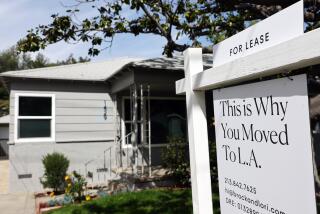Long-Term Care Plan for Elderly Offered : Health: Democrats’ $45-billion proposal would be financed through tax increases. The measure could affect 3.9 million Americans.
- Share via
WASHINGTON — Congressional Democrats, moving to seize the initiative on a key health-care issue, Thursday unveiled a $45-billion plan to provide federal health insurance for the long-term care of the elderly and disabled, to be financed by higher taxes.
The sweeping proposal, outlined at a press conference by leaders of the House and Senate, would cover everything from nursing-home expenses to home health-care services and custodial help for those such as Alzheimer’s patients who are too infirm to care for themselves.
It also would protect patients and families from having to give up their homes and all of their income to qualify for help--a major problem for many families that have a relative requiring long-term care. Some 84% of older Americans say that they cannot afford long-term care.
Democratic leaders conceded that the election-year proposal--intended as a supplement to the Democrats’ “play-or-pay” plan for guaranteeing basic medical and hospital insurance for all Americans--is unlikely to be enacted during the current session of Congress.
But they said they are proposing the program to “put the issue on the agenda” early so that Congress can deal with it next year or the year after.
The program has the official endorsement of top Democratic leaders in both houses. The White House has no plan of its own to deal with the elderly and disabled.
The program essentially would be open to any Americans who currently are not able to care for themselves--whether they only require help with eating and dressing or need nursing-home care that involves constant medical attention.
Sponsors estimated that approximately 3.9 million Americans would be eligible for benefits under the plan.
Coverage would be provided under a complex formula that ties eligibility for specific benefits to each patient’s needs. The plan, to be phased in over five years, is designed as a replacement for the portion of the Medicaid program that deals with long-term care.
Estimates by the nonpartisan Congressional Budget Office place the price tag for the program at about $45 billion a year--$20 billion for the nursing-home benefits and $25 billion for home health-care services.
Patients or their families would pay 20% of every bill, while the rest of the tab would be financed by increasing a broad range of federal taxes and by asking states to shoulder some of the burden.
The House version of the bill would boost the Social Security payroll tax by another half a percentage point for both workers and employers, impose a 2.5% tax on stocks and other investment income and reduce the amount of inherited assets exempt from taxation from $600,000 to $200,000.
The Senate measure does not specify which taxes would be raised to pay for the measure, but strategists said some increases would be certain.
Sponsors in the Senate include Majority Leader George J. Mitchell (D-Me.) and Sen. Edward M. Kennedy (D-Mass.), Sen. John D. (Jay) Rockefeller IV (D-W. Va.) and 10 other lawmakers.
The House bill was drafted by Majority Leader Richard A. Gephardt (D-Mo.) and Rep. Henry A. Waxman (D-Los Angeles), chairman of the House Energy and Commerce subcommittee on health and the environment.
More to Read
Get the L.A. Times Politics newsletter
Deeply reported insights into legislation, politics and policy from Sacramento, Washington and beyond. In your inbox twice per week.
You may occasionally receive promotional content from the Los Angeles Times.










